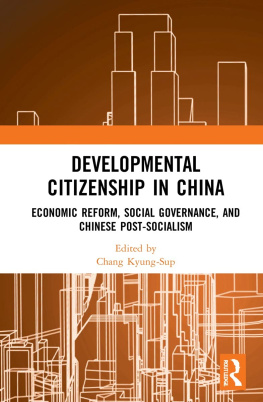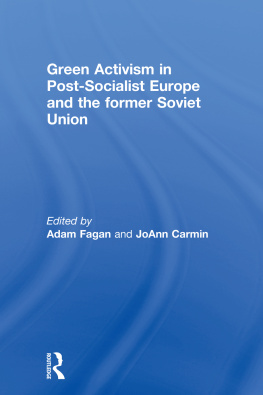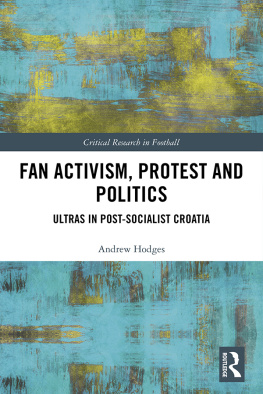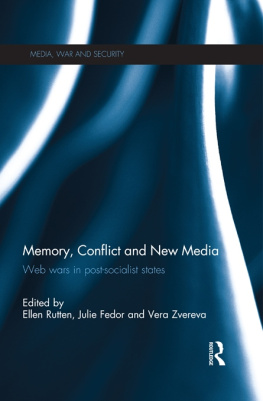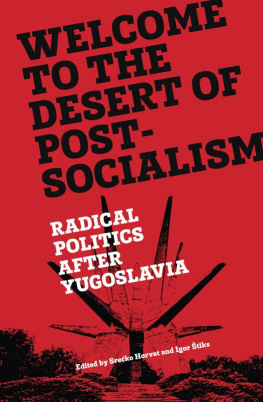
The Cultural Economy of Protest in Post-Socialist European Union
Focusing on Slovakia and East Central Europe, this book examines the cultural economy of protest and considers how the origins of political movements progressive and reactionary derive from resilient agrarian features.
It draws attention to how the legacy of rural state-socialist modernization influences contemporary politics and to the village version of fascism developing in the region. The chapters look at the interplay of post-peasant economic and political habits and representations as a result of state-socialism and with regard to the European project, as viewed through an ethnographic lens. Juraj Buzalka describes the bulk of Slovak citizens as post-socialist Europeans with a connection to the countryside who feel that this is where real power in society should be defined and based. He also observes the politicians who are skillfully mobilizing post-peasants while exploiting the political-economic context of the European Union.
This volume will be relevant to scholars with an interest in European society and politics, particularly protest and populism, from disciplines including anthropology, sociology, political science and history.
Juraj Buzalka is Associate Professor at the Institute of Social Anthropology, Faculty of Social and Economic Sciences, Comenius University in Bratislava, Slovakia.
Routledge Studies in Anthropology
Human Extinction and the Pandemic Imaginary
Christos Lynteris
The Biometric Border World
Technologies, Bodies and Identities on the Move
Karen Fog Olwig, Kristina Grnenberg, Perle Mhl and Anja Simonsen
Amerindian Socio-Cosmologies between the Andes, Amazonia and Mesoamerica
Toward an Anthropological Understanding of the Isthmo-Colombian Area
Edited by Ernst Halbmayer
Surfaces
Transformations of Body, Materials and Earth
Edited by Mike Anusas and Cristin Simonetti
Suckling
Kinship More Fluid
Fadwa El Guindi
Mambila Divination
Framing Questions, Constructing Answers
David Zeitlyn
Youth Culture and Identity in Northern Thailand
Fitting In and Sticking Out
Anjalee Cohen
The Cultural Economy of Protest in Post-Socialist European Union
Village Fascists and their Rivals
Juraj Buzalka
www.routledge.com/Routledge-Studies-in-Anthropology/book-series/SE0724
First published 2021
by Routledge
2 Park Square, Milton Park, Abingdon, Oxon OX14 4RN
and by Routledge
52 Vanderbilt Avenue, New York, NY 10017
Routledge is an imprint of the Taylor & Francis Group, an informa business
2021 Juraj Buzalka
The right of Juraj Buzalka to be identified as author of this work has been asserted by them in accordance with sections 77 and 78 of the Copyright, Designs and Patents Act 1988.
All rights reserved. No part of this book may be reprinted or reproduced or utilised in any form or by any electronic, mechanical, or other means, now known or hereafter invented, including photocopying and recording, or in any information storage or retrieval system, without permission in writing from the publishers.
Trademark notice: Product or corporate names may be trademarks or registered trademarks, and are used only for identification and explanation without intent to infringe.
British Library Cataloguing-in-Publication Data
A catalogue record for this book is available from the British Library
Library of Congress Cataloging-in-Publication Data
A catalog record has been requested for this book
ISBN: 978-0-367-43151-8 (hbk)
ISBN: 978-1-003-00150-8 (ebk)
This is the study in the anthropology of politics on cultural economy of protest in Slovakia and East-Central Europe. The origins of protest movements reactionary or progressive derive from the resilient agrarian features of state-socialist modernity. They must be analyzed beyond the present day reach of the ephemeral phase of neoliberal capitalism and its crisis.
The major empirical focus of this work is on the bulk of Slovak citizens who are connected to the countryside and feel that real power in society shall be defined and based there. This major group can be characterized as living between rural and urban worlds. Rustically romantic by heart, but modest beneficiaries of post-socialist capitalism, they make good sense of life in technologically and institutionally advanced European Union. These people are post-socialist European citizens whose identity I characterize as post-peasant. The post-peasants in contrast to socially excluded Roma and desperate war refugees are rather prosperous citizens from among the top ten percent of the richest states in the world.
This work also focuses on skilful politicians exploiting the political-economic context of European Union. These entrepreneurs have not been necessarily refusing the benefits of integration, but by knowing intimately well how post-peasants live and think they offer a coherent integral ideology of politics, paving the way for village fascists. Their rivals are the post-peasant petite gentry: a relatively small circle of educated, liberal, and elitist reformers who follow the enlightenment modernity canon but cannot escape the post-peasant constituency of post-socialist politics.
In sum I propose to look at the interplay of post-peasant economic and political habits and representations in effect of state-socialism and with regard to European project as viewed through ethnographic lenses. This perspective avoids simplifications of dominant post-socialist discourse blaming unspecified totalitarian heritage, the semi-peripheral position of post-socialist societies in world capitalist system, and/or the deficiencies of transition towards liberal democracies. The perspective on cultural economy of protest is best suitable to discuss the paradox of European enlargement as actual societal progress and in the same time cultural trauma of post-peasants.
In my earlier work (Buzalka 2007) I argued, the post-peasant condition is not about the peasantry; rather, it can be defined as a type of modern political culture based on a non-urban social structure and imagined rurality. It is opposed to capitalist, cosmopolitan, and secular worldviews and life-styles, and it offers an alternative moral model for economic development.
I argued that the politics of commemoration constituted the post-peasant populism in everyday life. Two elements, a traditional social structure recalling the agrarian era on a societal scale with large-scale transformations like state-socialism and post-socialism contributing to the solidity of this structure -- and what might be seen locally as a combination of identity narratives, collective memories, and rural ideologies made up what I called post-peasant populism as a mobilizing force.
I believe there is the interplay of two concepts related to earlier reification of political culture in post-peasant populism -- post-peasant house and post-peasant integralism that complements the inadequacy of my earlier approaches. First concept of post-peasant house represents the idea and practice of livelihood, its change and transmission over time, which incorporates material, symbolic, and intellectual components of economy. This economy is embedded within and gives rise to patterns of politics both in terms of scale such as the distribution of power as well as intensity in terms of feelings and time frames -- that leaders maintain for their followers.


